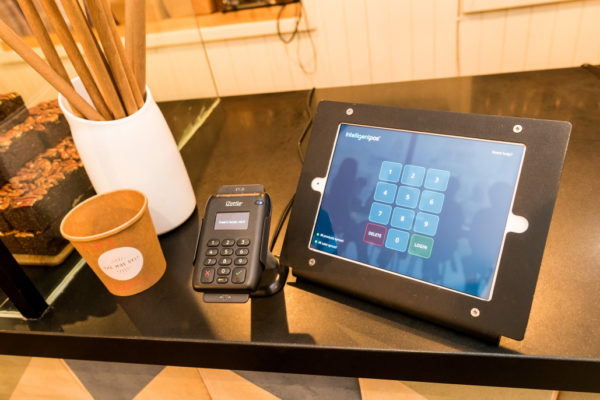
iZettle raises $63M more at a $500M valuation to expand from mobile payments
By Ingrid Lunden for TechCrunch
The world of mobile payments continues to consolidate and mature, and today one of the leading players among European mobile payments startups has raised a significant round of money to help keep itself on top. iZettle, the Swedish company that offers a card reader that works with your smartphone or tablet, plus a suite of financial services for the small businesses, is announcing that it has raised €60 million ($63 million) in new funding.
On top of this, iZettle has appointed a new CFO, Maria Hedengren, who has quietly been with the company since last month, joining from online gambling specialist NetEnt.
Jacob de Geer, the founder and CEO of the company, tells TechCrunch that about €45 million of the funding is coming in the form of debt from Victory Park Capital, the firm that has backed a number of other financial startups. The remaining €15 million comes from existing investors (there are 16 in all, including Intel, Index, MasterCard and American Express) and is an extension of the company’s Series D from 2015. The company has raised about $235 million in funding to date.
We’ve confirmed also that iZettle’s valuation remains at $500 million as before.
De Geer said that the idea behind the funding is to use it in part for acquisitions, particularly to continue expanding its business into more services beyond mobile payments across markets where it’s already live. iZettle today is live across 10 countries in Europe, as well as Brazil and Mexico.
“Part of this will be used for acquisitions,” he said. “We’re looking at many different things. We have gone from being a mobile payments company to providing financial solutions for small businesses.” iZettle last year acquired intelligentpos to add inventory, loyalty programs and customer flow analytics to its platform.
Acquiring companies would also tap into a wider trend in the area of financial technology, he said. “There are a few big players in the payments world right now, but also many small companies, struggling to find the right and healthy business model,” he said. “There are interesting ways of combining these companies today.”
iZettle does not disclose its revenues, but it is not yet profitable and in 2015 (the most recent published accounts), its losses of 295 million kroner ($41.3 million) was nearly as high as its revenues of 300 million kroner. De Geer said that the company overall has been adding 1,000 new businesses to its platform each day (no word on how many are ‘lost’ — that is, in active on iZettle’s network. “There are so many opportunities for us to leverage this,” de Geer said.
While Square entered the public markets in the U.S. before it turned profitable and has seen its stock rollercoaster (currently it’s at a relatively good point), de Geer noted that his company is not getting pressure from investors to do the same.
“European companies do have a slightly different approach when it comes to profitability and going public when compared to U.S. companies,” said de Geer. “When you consider the amount of capital raised and the valuations in the U.S., typically you don’t see this in Europe. Even though iZettle is a company that has used VC money for growth purposes, it can’t be compared to its U.S. equivalents. A clear path to profitability by the end of 2017 is one of our core expectations.”
Nevertheless, putting a new CFO (who came from a public company) is one definite sign of how the company intends to scale in its next phase.
“We have been following the impressive growth of iZettle since its inception. iZettle is an innovator and a clear market leader in Europe and we want to be part of its next chapter of growth. 2017 promises to be a vibrant and buoyant time for both iZettle and its market,” said Gordon Watson, Partner at Victory Park Capital, in a statement.
First appeared at TC





